Bachelor’s Degrees to Women
Historically, fewer bachelor’s degrees in engineering and computer/information sciences are awarded to women than men. Overall, interest in these fields has grown, with more than 249,000 bachelor’s degrees in engineering and computer/ information sciences awarded in the 2020-2021 academic year. Although the percentage of women earning degrees has remained relatively unchanged in the past, the number of women obtaining bachelor’s degrees in engineering and computer science has more than doubled from 2011 to 2020. Overall, the percentage of women in comparison to men has increased from 17.7% to 22.5%
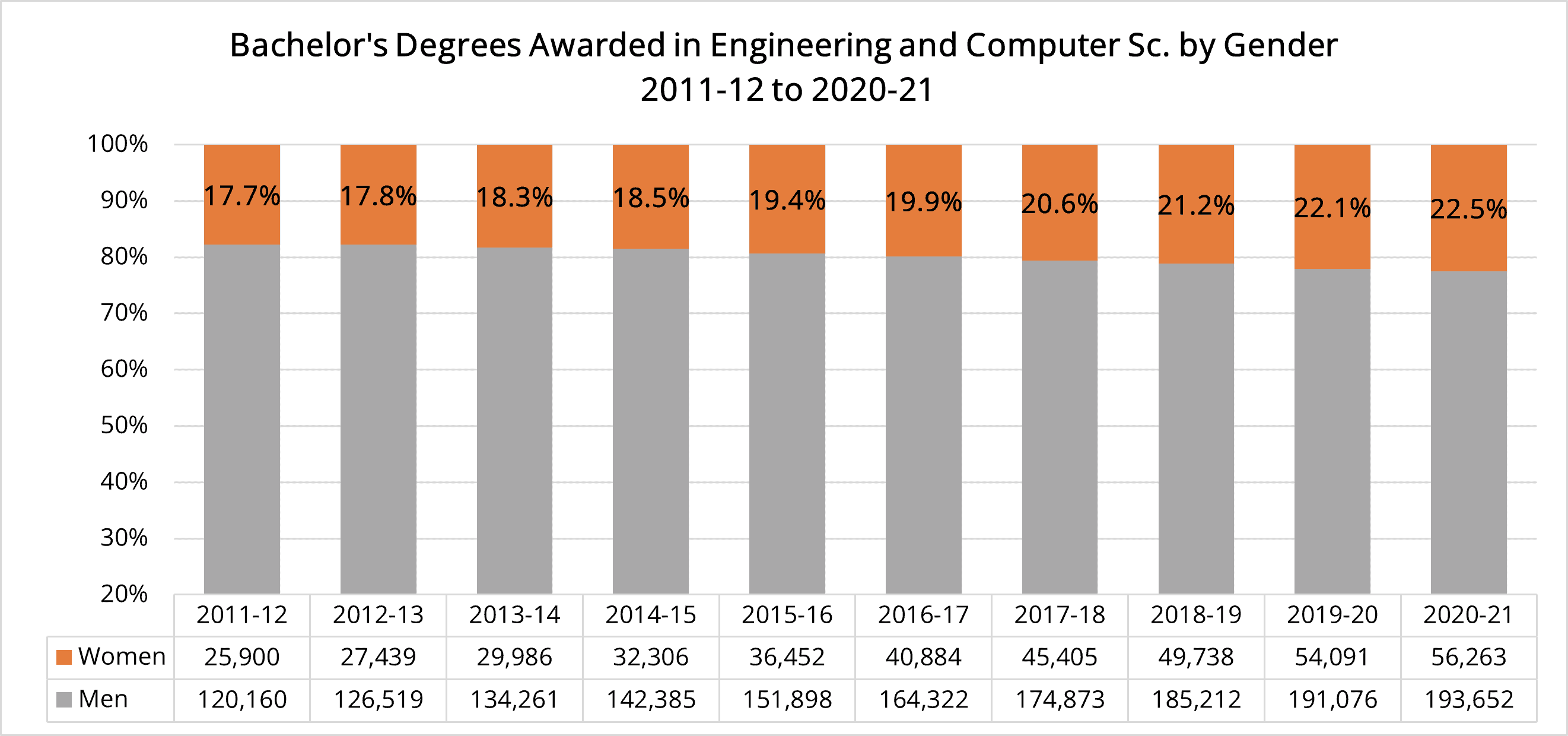
Top 10 Engineering Bachelor’s Degrees Awarded to Women 2022
Information from the American Society of Engineering Educators was used to rank the top ten engineering disciplines, awarding the most bachelor’s degrees to women in 2022. According to their data, Mechanical Engineering emerged as the leading discipline, awarding 5,789 degrees to women, followed by Computer Science and Biomedical Engineering. The table below provides more specific information on the distribution of degrees across the top 10 engineering professions. The percentages in the table’s last column also show the proportion of degrees issued to women versus men, providing valuable insights into gender equality within each engineering subject.
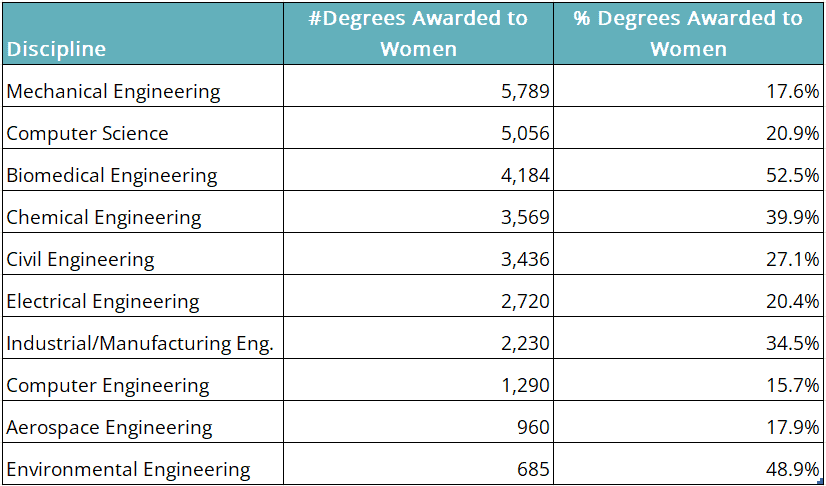
Advanced Degrees Earned by Women
The number of engineering and computer science degrees awarded at the master’s and doctoral levels has increased. In the last ten years, the number of women getting degrees in these two areas has more than doubled. the gender gap remains considerable, with women receiving only 31.1% of master’s degrees in engineering and computer information sciences and 26% of doctoral degrees.
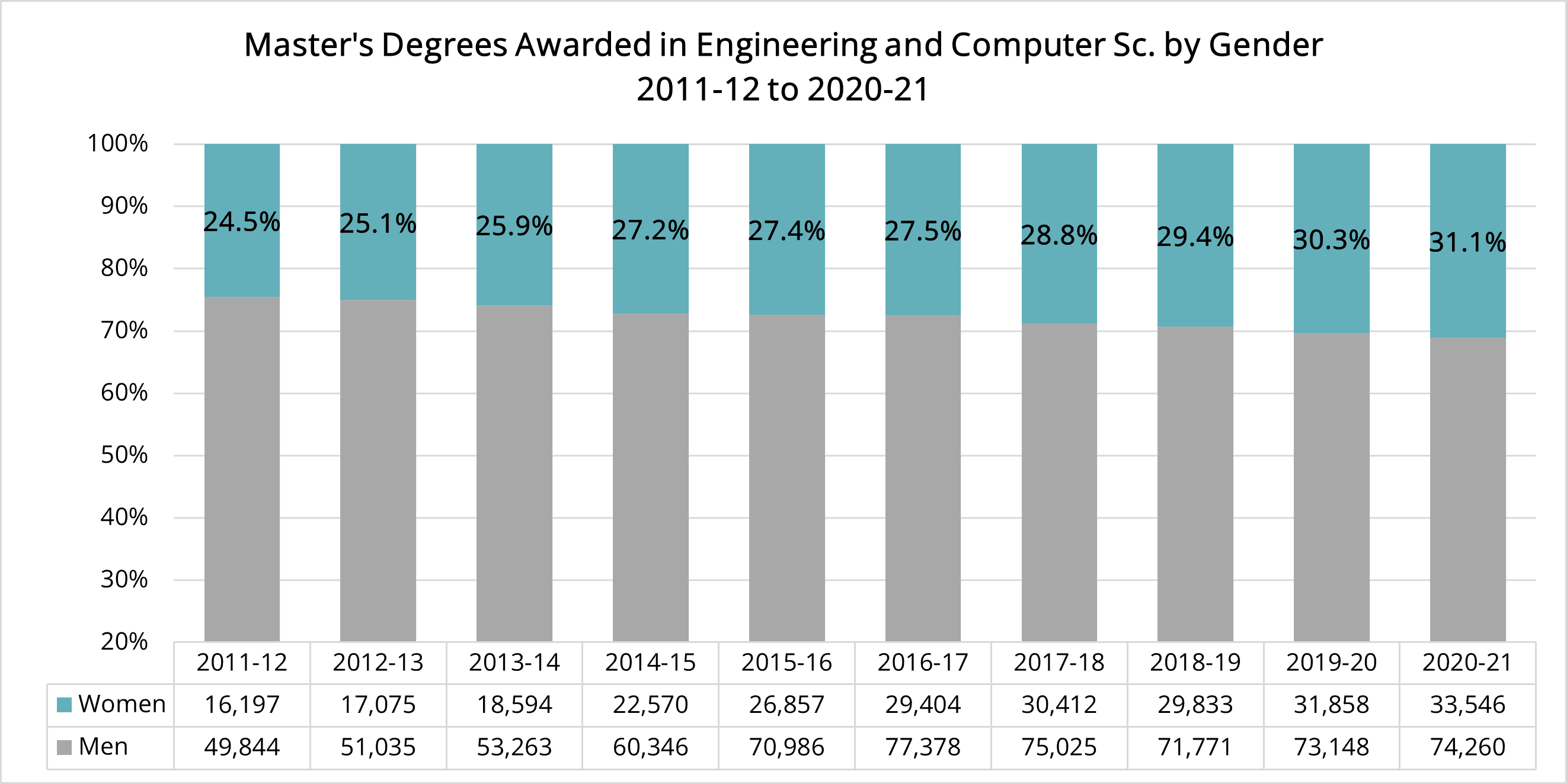
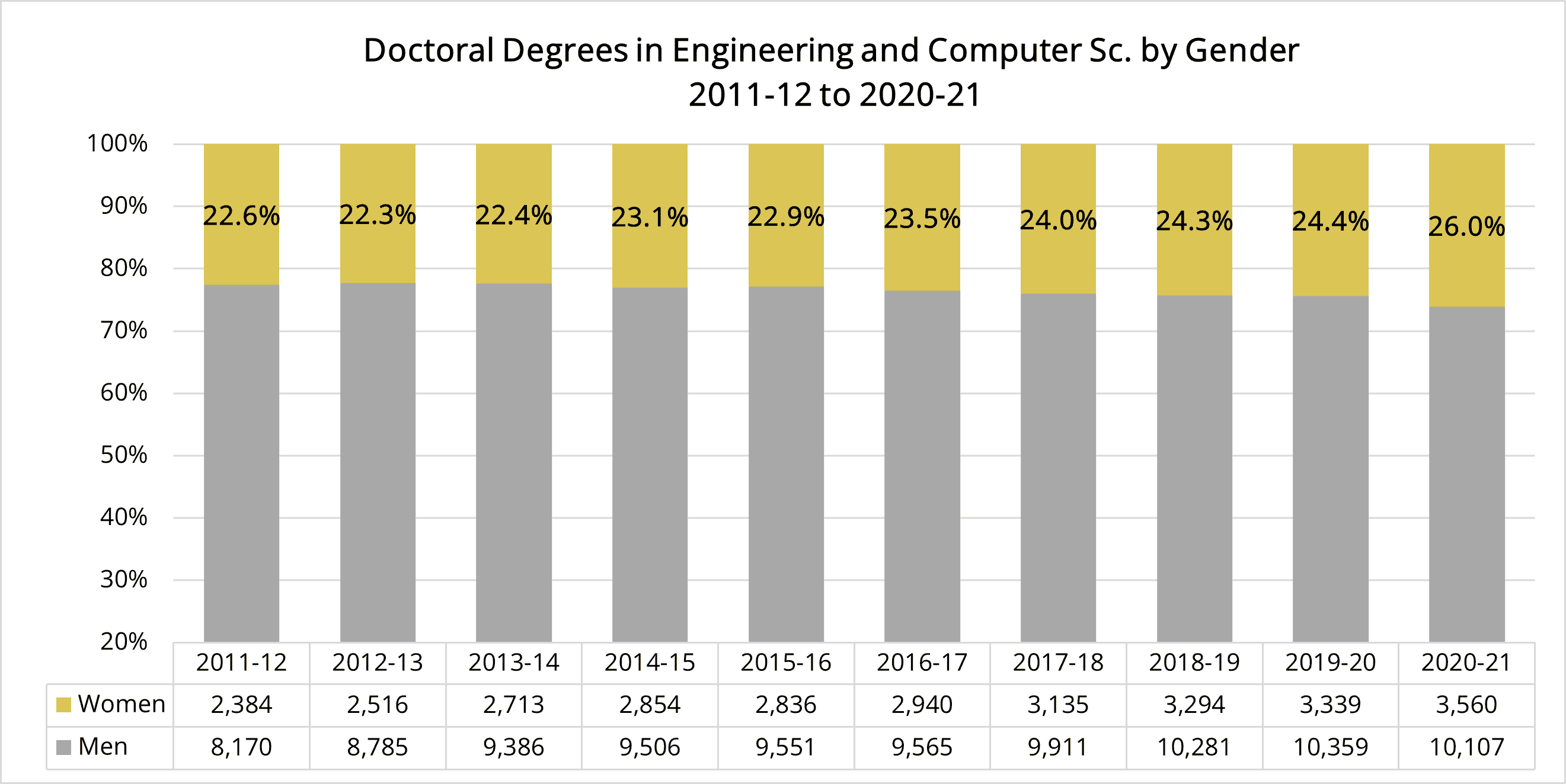
From the 2019-20 academic year to 2021-22, there has been an increase in the number of degrees awarded to women in engineering at the bachelor’s, master’s, and doctoral levels. Breaking down the data by race reveals White women earned 57.8% of engineering bachelor’s degrees, women identifying as Asian comprised 16.7%, Hispanic women accounted for 14.3%, and Black women constituted 5.8% in 2021-2022. Similar demographic distributions were observed across both Master’s and Doctoral levels.
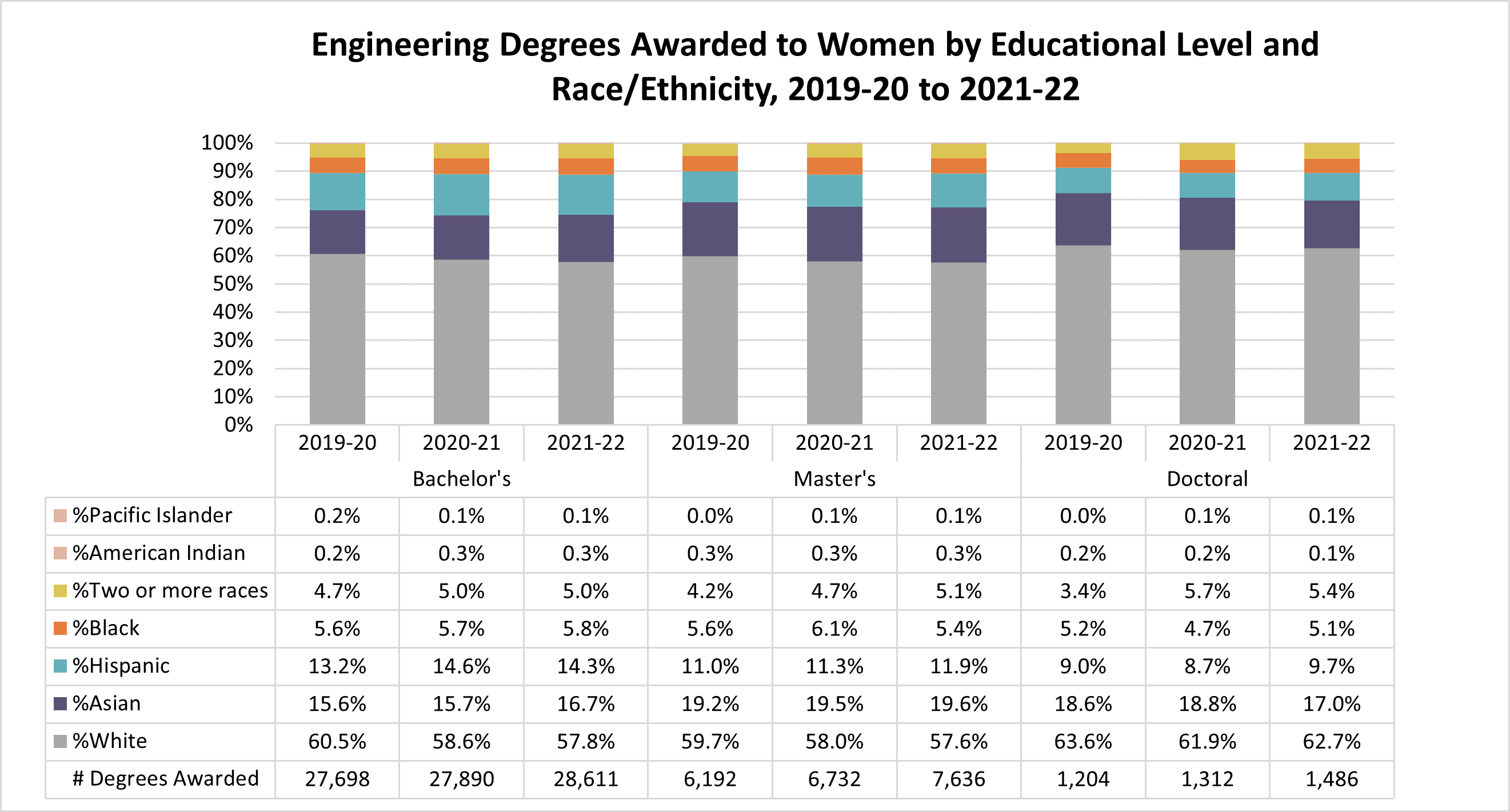
Over the past ten years, Black and Latina women comprised less than 4% of the total bachelor’s degree holders in engineering and less than 5% of the bachelor’s degree holders in computer science. While Black women have constantly represented about 1% of engineering bachelor’s degree holders in the last several years, their representation among computer science bachelor’s degree holders has declined since 2012 and stagnated at around 2.5%. On the other hand, the percentage of Latinas earning a bachelor’s degree in engineering has increased from 1.7% to 3.3%
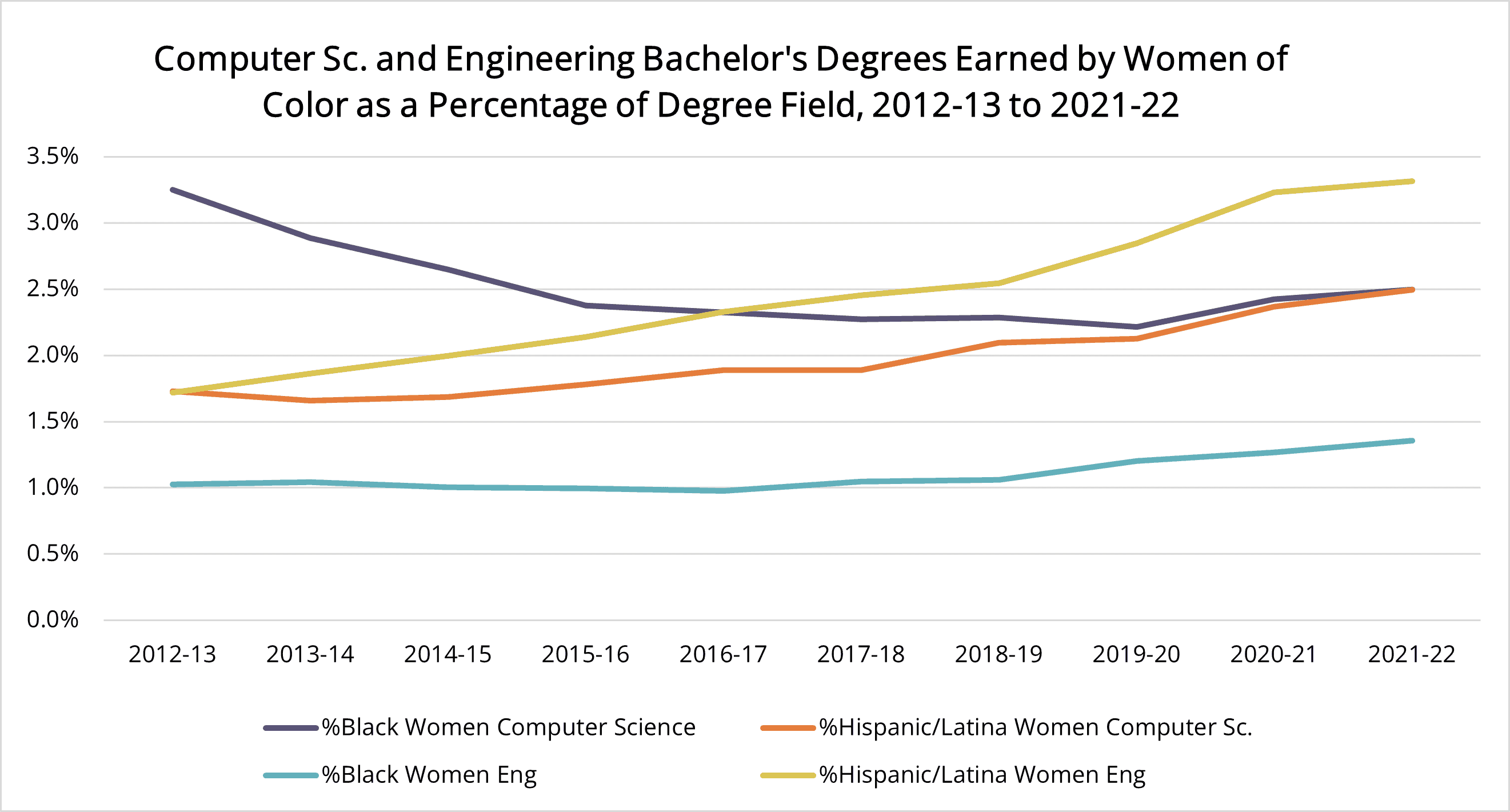
Note: For this graph, women of color include Black/African American and Hispanic/Latina only.
SWE Efforts to Increase Female Attainment of Engineering Degrees
SWE has a strong network of collegiate members across the country.
Additional Resources
- American Society for Engineering Education. (2022). Profiles of Engineering and Engineering Technology. Washington, DC.
- U.S. Department of Education, Institute of Education Sciences, National Center for Education Statistics, Digest of Education Statistics
- National Science Foundation, National Center for Science and Engineering Statistics. 2021. Women, Minorities, and Persons with Disabilities in Science and Engineering: 2023.
- Fletcher, T., Ross, M., et al. (2016). Ignored Potential: A Collaborative Road Map for Increasing African-American Women in Engineering.